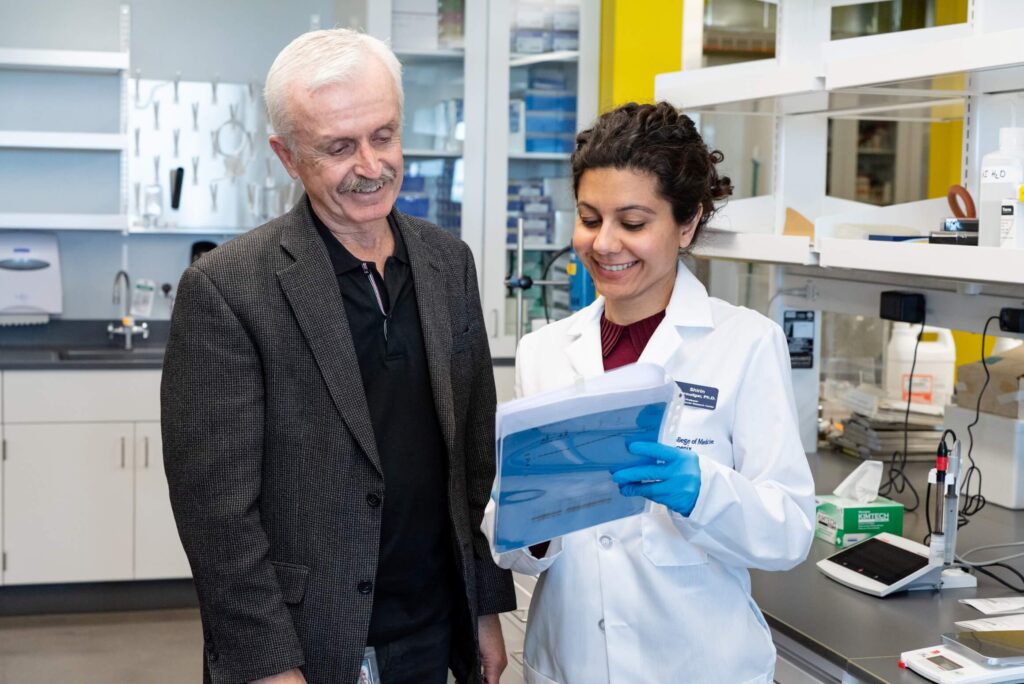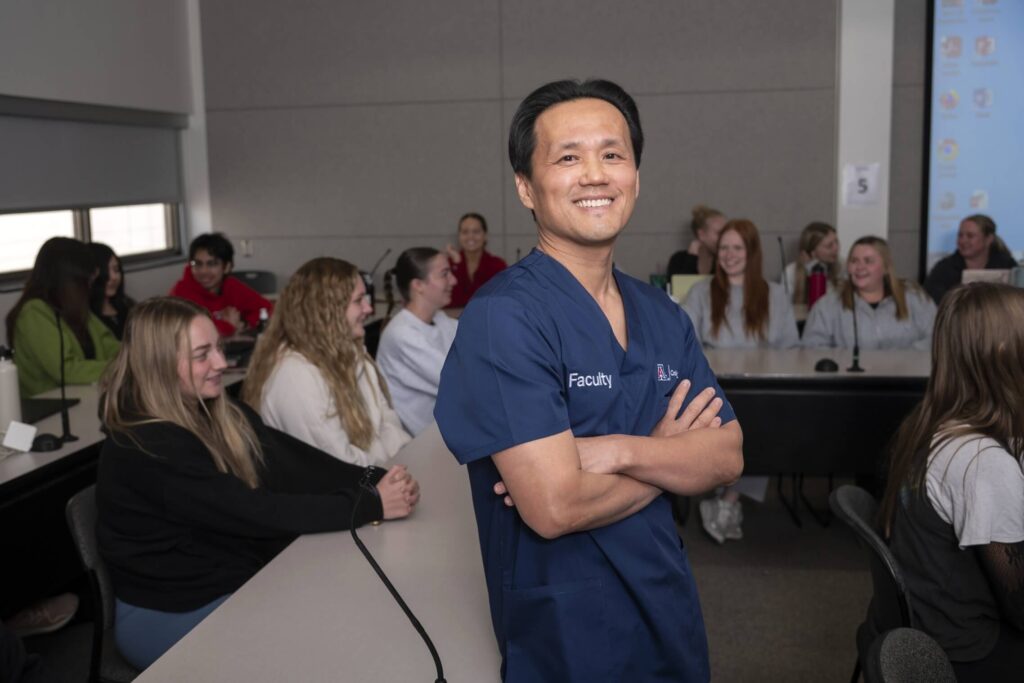In May 2024, the University of Arizona College of Medicine – Tucson unveiled the new Andrew Weil Center for Integrative Medicine complex. The center’s 30,000 square feet are spread across three buildings designed to embody and promote whole-person wellness and the principles of integrative health. Each building represents an aspect of the whole person: mind, body and spirit.
“Not only is the new building complex the realization of my dream to have a proper home for our center that embodies our philosophy of health and wellness, it is significant as the first dedicated integrative medicine center to open in the heart of the medical campus of a major university,” said Andrew Weil, MD, the Lovell-Jones Endowed Chair in Integrative Medicine and founder of the University of Arizona Andrew Weil Center for Integrative Medicine.
The largest building, named after donor Iris Cantor, represents the body, was built to accommodate education and wellness activities for health care professionals and the public. The “mind” building houses the center’s administrative functions, and the “spirit” building provides a tranquil environment for nondenominational spiritual engagement and meditation.
The Andrew Weil Center for Integrative Medicine is internationally recognized for its innovative educational programs. The center partners with more than 100 residency programs and has welcomed thousands of physicians from all over the world since its creation in 1994. Professionals trained at the center are now guiding more than 10 million patients to take a greater role in their health and healing.
“The Andrew Weil Center for Integrative Medicine is a beacon of innovation in modern health care and has empowered physicians worldwide to transform the practice of medicine,” said Stephen Dahmer, MD, director of the center. “By highlighting both the science and the power of lifestyle changes, the mind-body connection and holistic approaches to well-being, we have trained thousands to guide millions toward a more complete, patient-centered path to health and healing.”
In addition to being a place for learning, the Andrew Weil Center for Integrative Medicine is known for cutting-edge research in stress and illness, and place and well-being. The complex will serve as a “living laboratory” where investigators from various disciplines can conduct collaborative research in areas such as building systems and technologies that promote wellness and optimize the well-being of workers.

Dahmer’s research focuses on integrative medicine, plant-based medicine and the therapeutic application of cannabis in managing chronic pain. He is a member of the U of A Health Sciences Comprehensive Center for Pain & Addiction in addition to his work at the Weil Center for Integrative Medicine.
His journey as a physician and researcher have taken him around the world, from the Navajo Nation to Brazil, New Zealand and the islands of Micronesia. His experience complements the Andrew Weil Center’s mission to understand ethnomedical systems and integrate diverse approaches into patient care.
“Integrative medicine is the most promising means by which we can realistically achieve the ‘quintuple aim’ in health care,” said Dahmer, explaining that the quintuple aim expands health-care goals to improve population health, enhance patient experience, reduce costs, support health-care worker well-being and advance health equity. “Integrative medicine’s comprehensive, patient-centered approach will contribute to achieving these aims by addressing the interconnected physical, menta and social factors that influence health outcomes across diverse populations.”
“As we move forward, we continue to expand, improve, and refine this core work,” Dahmer added, “ensuring that our training programs remain at the forefront of integrative medicine and effectively meet the evolving needs of health-care practitioners and their patients.”



